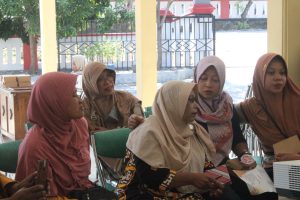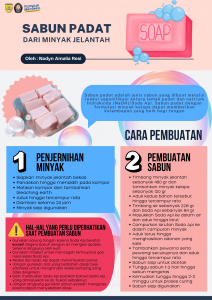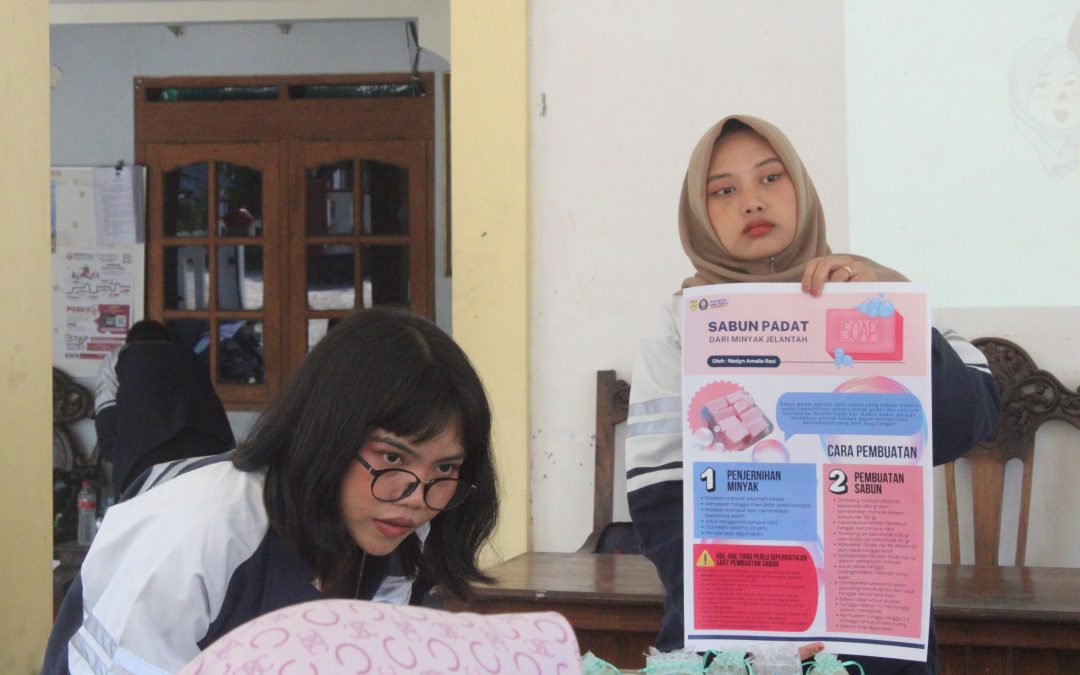Jagan Village, Bendosari Subdistrict, Sukoharjo Regency – On Sunday, 28 July 2024 Diponegoro University (UNDIP) KKN TIM II student, Nadyn Amalia Resi, from the Industrial Chemical Engineering Technology Study Program, Vocational School implemented a community empowerment work program that converts used cooking oil waste into solid soap to moisturise hands. The programme aims to address waste problems and improve the welfare of local communities through useful products.
The programme was led by Nadyn Amalia Resi, and involved Jagan Village residents as participants and beneficiaries. Nadyn and her KKN team collaborated with the local community to implement techniques to process used cooking oil waste.
This activity was carried out in Jagan Village, Bendosari District, Sukoharjo Regency. This village was chosen due to the high potential of used cooking oil waste and the community’s need for environmentally-based solutions.
The event took place on Sunday, 28 July 2024. On that day, this empowerment programme was implemented with hands-on training and a workshop on making solid soap from used cooking oil.

Participants’ Enthusiasm during the Activity
The surrounding women who work as farmers who often complain about the condition of dry hands after working all day is one of the considerations in the implementation of this work programme, besides that used cooking oil waste is often thrown away carelessly and can pollute the environment. This programme aims to reduce the negative impact of such waste, while providing added value in the form of solid soap products that are beneficial for hand moisture. In addition, this activity also aims to improve the skills and knowledge of the community in processing waste into products of economic value.
“After coming home from farming, my hands are always dry because I hold the soil too long. This training really helps us to overcome these problems, so we are greatly helped. In addition, we also see the potential of this product to increase UMKM in Jagan Village,” said Mulyani, one of the participants.

Poster ‘how to make solid soap from waste cooking oil’
The solid soap making process begins with the collection of used cooking oil waste from households in the village. The waste is then processed through a series of chemical processes involving additional ingredients to produce solid soap. Nadyn Amalia Resi and her team provided step-by-step training to the participants, from initial processing to making ready-to-use soap. Participants were actively involved in every stage of the process to ensure they understood and could apply the techniques independently in the future.
The programme is expected to not only provide practical benefits to the community in the form of hand moisturising soap, but also have a positive impact on the environment by reducing waste and raising awareness about household waste management.


Recent Comments